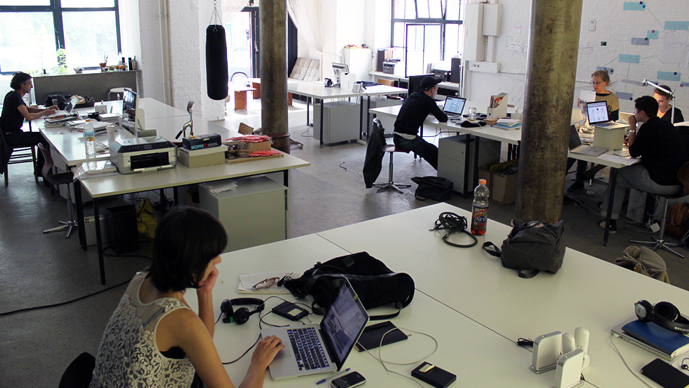New index compares European cities' potential to exploit coworking revolution
- In Analysis
- 16:23, 02 April 2019
- 1685 Views

Stockholm, Copenhagen and Dublin are among the best placed cities to benefit from the rapid rise of coworking spaces, according to a new assessment tool developed by real estate advisor Cushman & Wakefield.
C&W's European Coworking Hotspot Index scored 10 key markets on their suitability for flexible workspaces. The method is designed to help landlords and operators identify ways to adapt their office spaces to meet changing tenant requirements.
While London had the most coworking space in Europe, amounting to 1.1 mln m2 or 4.6% of the overall office market, cities such as Stockholm and Dublin had strong credentials to close the gap on the British capital and Paris, which also scored highly.
Flexible working accounts for around 2% of total office stock in Europe's major markets, with the exception of Amsterdam where it is estimated to represent 6% of the market. The Dutch capital has the fourth largest coworking market in the world after New York, London and Beijing.
In London, where coworking accounted for 16% of new office leases in 2018, WeWork has become the largest private office tenant in the city.
London's well developed market scored highest on the index, followed by Paris, with Stockholm, Dublin and Copenhagen close behind. Munich, Berlin, Helsinki, Amsterdam, Madrid and Tallinn made up the top 10.
Companies that benefit from flexible working tend to prefer flexible lease lengths so they can move as they grow, low rental values and labour laws that allow them to adjust staffing levels easily. Other factors that were included in the composition of the index were the number of available ICT workers, the use of online collaboration platforms such as GitHub and a relatively young, well-educated population.
Report author Elisabeth Troni, head of EMEA research and insight at C&W, said: 'Our European Coworking Hotspot Index adds a twist to the traditional office market hierarchy and shows the disruptive potential of this fast-emerging sector.
'However, coworking growth potential also reveals a wide range of dynamic factors underlying a city’s office market. In particular, the growth in coworking represents a clear shift in employment towards digital and technology-based sectors and away from traditional financial services.
'The new growth sectors of the digital economy are more nimble – and comfortable with flexible working practices. This change in tenant preferences for flexible working is shifting the balance of power towards the tenant as the landlord looks to adjust and adapt their strategies in response.
'Our analysis shows every city is different. We expect demand for coworking to be strong in our featured hotspot markets and would recommend that coworking operators and office landlords and investors alike adopt a proactive strategy to managing their response to these dynamics.'






